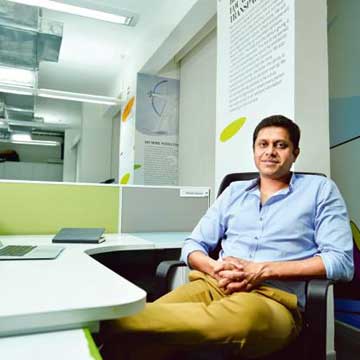 Bengaluru:
Bengaluru: At a time when India is listed as being home to among the most depressed citizens of the world, Bengaluru has been witnessing a steady change in its start-up space, with a number of firms coming up to address the issues around mental health using technology.
According to a World Health Organisation (WHO) study in 2014, India is among the leading countries whose citizens are battling depression and anxiety.
Even with an alarming situation in which over 50 million (WHO study, 2015) Indians are fighting depression each day, there are only about 0.3 psychiatrists and 0.07 psychologists for every 100,000 people in the country, as per WHO statistics.
It is against this background that start-ups are taking to artificial intelligence (AI) and modern technological means to keep a keen eye on the mental health of Indians.
"Shattering the stigma attached to mental health in the country" was one of the reasons that prompted entrepreneur Mukesh Bansal to start Mind.fit, a segment dedicated to mental wellness through his wellness start-up Cure.fit.
"Unfortunately, mental health is a much-neglected aspect in India. Given the rising cases of lifestyle diseases, we wanted to build a unique, customer-focused holistic health solution that inculcates mental wellness," said Bansal.
"There is a gradual increase in the number of people taking some steps towards coping with anxiety, hypertension, stress and other issues. This is a positive sign," he admitted.
Mind.fit was conceptualised by renowned psychiatrist Shyam Bhat, who had also helped actor Deepika Padukone battle depression.
Offering DIY (do it yourself) sessions on their Cure.fit application and through the Mind.fit centre in Bengaluru and in other cities, which are to be launched by 2018, the start-up aims to bring the aspect of mental health "out into the open".
"We have such a huge population and many millions affected by mental illnesses. Everyone living in urban India is at risk," said Bhat. "The mission has been to bring mental health out into the open. We have no way to beat the problem with conventional means as we do not have enough psychiatrists."
"So the idea behind Mind.fit was to bring something for our minds, the same way we have gyms for our bodies," the psychiatrist added.
According to Indian online doctor consultation platform, Lybrate, people aged between 25 and 45 were 50 per cent more likely to have mental health issues than any other age group.
The numbers are even higher when it comes to the urban population. According to the National Mental Health Survey of India 2015-16, urban Indians are 2-3 times more likely to face stress-related mental issues.
Hence the start-ups believe that the issue has to be addressed through non-conventional means like technology.
"Everyone was using technology for the sake of marketing, but we wanted to use it for a social change—to address mental health issues," said Jo Aggarwal, the founder of Wysa, an emotionally intelligent chatbot that acts as a "virtual coach" in improving people's mental health.
Through the AI bot, which was launched for the public in January, the firm has been able to provide mental health support to over 90,000 users in around 30 countries.
The chatbot enables users to chat with it anonymously and seek medical help when required.
"People don't want others to know that they are depressed and Wysa helps in offering support while maintaining anonymity," Aggarwal added.
Bengaluru-based LeanOnMe is another such platform that is making use of a mobile application to let counselling be available to everyone.
"Technology is only an enabler in fighting social stigma," said Jennyfer Rajan, founder and chief executive officer of LeanOnMe.
"In a world where people are afraid to seek medical help directly due to the fear of being labelled, technology helps people break that fear," she added.
 Bengaluru: At a time when India is listed as being home to among the most depressed citizens of the world, Bengaluru has been witnessing a steady change in its start-up space, with a number of firms coming up to address the issues around mental health using technology.
Bengaluru: At a time when India is listed as being home to among the most depressed citizens of the world, Bengaluru has been witnessing a steady change in its start-up space, with a number of firms coming up to address the issues around mental health using technology.